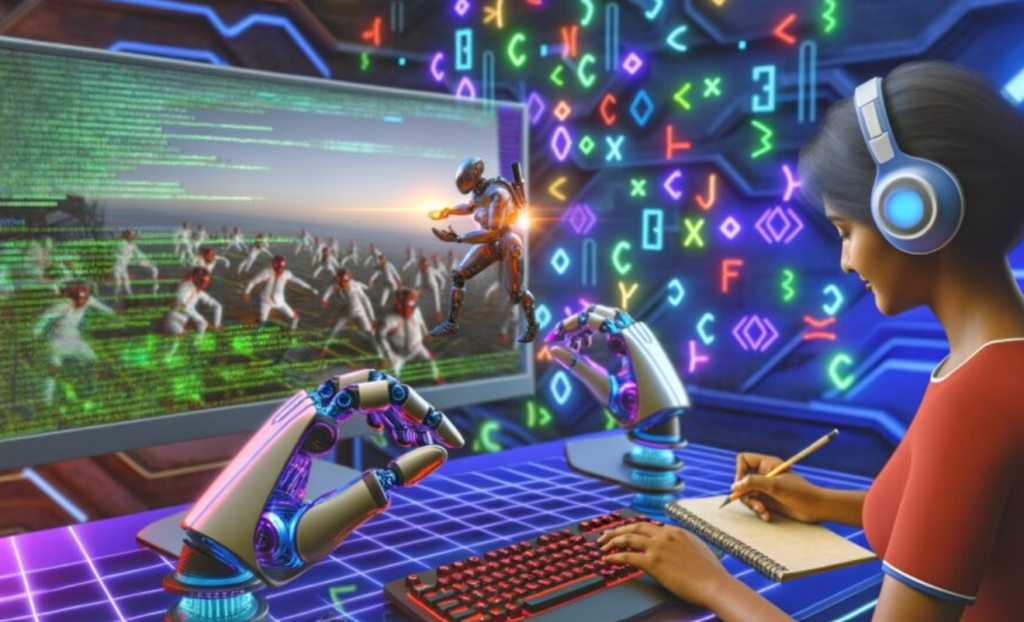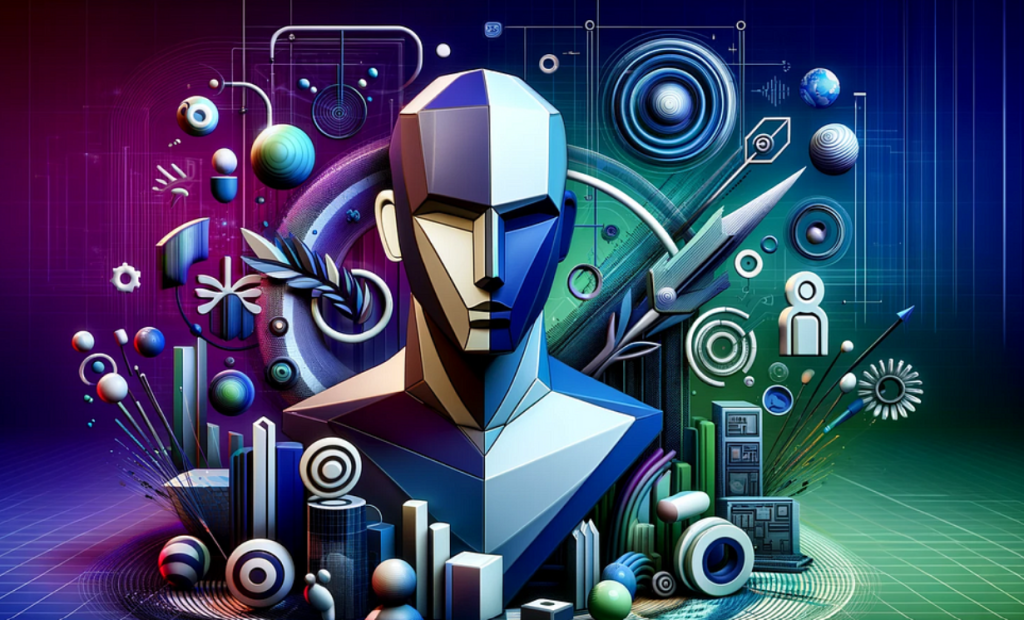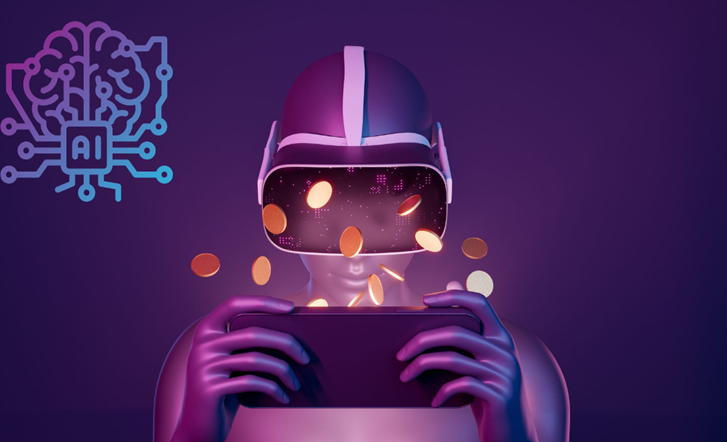Table of Contents
The intersection of artificial intelligence (AI) and the video game industry is a topic of increasing relevance and intrigue. As AI technologies advance, they present both opportunities and challenges for game developers, artists, and players alike. The gaming sector, which has seen significant growth in recent years, particularly during the pandemic, is now grappling with the implications of AI on job security, creative processes, and the overall landscape of game development.
With major companies investing in generative AI tools, there is a buzz around the potential for these technologies to streamline development, enhance player experiences, and drive innovation. However, this enthusiasm is tempered by concerns from industry professionals about job displacement, the dilution of artistic expression, and ethical considerations surrounding copyright and content creation.

As the industry navigates this technological shift, the perspectives of developers and creators—who are at the forefront of these changes—are crucial in understanding how AI will shape the future of gaming. Balancing the benefits of AI with the need to preserve human creativity and originality remains a pressing challenge for all stakeholders involved.
What are the potential benefits of AI for game developers?
AI offers numerous benefits for game developers. It enhances content creation by generating assets like graphics and sound, saving time and resources. Procedural generation allows for dynamic game worlds, providing unique player experiences. AI also streamlines game testing by simulating player behavior to identify bugs and assess balance efficiently.
Additionally, AI can personalize gameplay by analyzing player preferences and adjusting difficulty levels. Smart NPCs powered by AI react realistically to player actions, increasing immersion. Data-driven insights help developers make informed design decisions, while automation of repetitive tasks accelerates development cycles and reduces costs.
AI also enables dynamic storytelling that adapts to player choices, fostering engaging narratives, and encourages innovative gameplay mechanics that challenge players in new ways.
Related: Unlocking Efficiency: The Essential Guide to Otter AI
What are the copyright issues related to AI-generated content?
Copyright issues related to AI-generated content are complex and multifaceted. AI tools often rely on large datasets scraped from the internet, which may include copyrighted materials used without permission, raising potential infringement concerns. Additionally, the question of authorship becomes ambiguous, as it remains unclear who holds the copyright for AI-generated works—whether it’s the developer of the AI, the user who inputs prompts, or no one at all.

Moreover, AI outputs may closely resemble existing works, leading to disputes over whether they constitute derivative works that infringe on original copyrights. Current copyright laws may not adequately address these challenges, creating uncertainty regarding protection rights. Ongoing legal cases are exploring these issues, which could significantly influence future regulations surrounding AI in creative fields.
How do indie developers view the use of AI in gaming?
Indie developers generally view the use of AI in gaming with caution. Many express concerns that AI could undermine originality, leading to cloned or derivative games rather than unique creations. They worry that reliance on AI may favor larger studios, making it harder for smaller developers to compete. Additionally, there are fears of job displacement, as AI could take over roles traditionally filled by human artists and designers. However, some indie developers see potential benefits in using AI to automate repetitive tasks or enhance game mechanics while prioritizing their creative voice and the unique experiences they provide to players.
What steps are being taken to address ethical concerns surrounding AI?
To address ethical concerns surrounding AI, several steps are being taken across the industry. Organizations and industry groups are establishing guidelines and best practices for the responsible use of AI in gaming and other sectors. Governments are developing regulatory frameworks focusing on data usage, transparency, and accountability.
Training programs on ethical AI practices are becoming more common, ensuring that developers understand the implications of their work. Companies are also committing to transparency about how AI systems are trained and operate, building trust with users. Engaging the public and stakeholders helps gather input on ethical issues, while an emphasis on responsible data management aims to avoid copyright infringement and ensure compliance with privacy laws. These efforts seek to balance innovation with ethical considerations.
Final Verdict
In conclusion, the integration of AI in the gaming industry offers both opportunities and challenges. While AI can enhance game development and create personalized experiences, it also raises ethical concerns related to copyright, job security, and creativity. To navigate these complexities, it’s essential for developers, companies, and regulators to establish clear guidelines that prioritize responsible practices. Engaging in open dialogue will help address these issues and ensure that the artistic integrity of gaming is preserved. Ultimately, balancing innovation with ethical considerations will be crucial for the future of the industry, allowing it to thrive while respecting its creative roots.
Are there concerns about job loss due to AI in the gaming industry?
Yes, many industry professionals express worries that AI could lead to job displacement, especially in entry-level roles such as concept art and asset creation. There is also concern that existing roles may shift to more support tasks rather than original creation.
How does AI affect the creative process in game design?
While AI can generate assets and ideas, some creators fear it may dilute the unique human touch that is essential to artistic expression. There are worries that artists may end up refining AI-generated content rather than creating original work.
